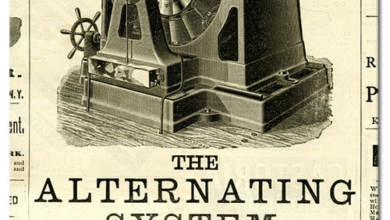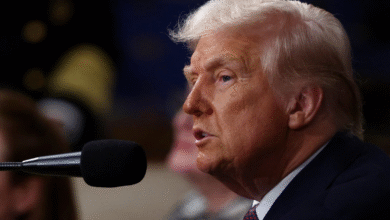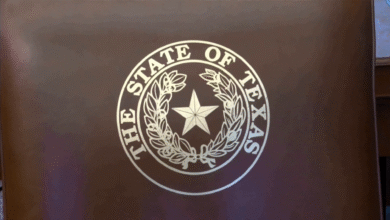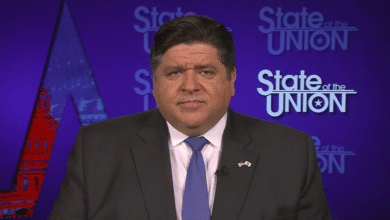AI Copyright Case: Meta Wins Against Authors in Court
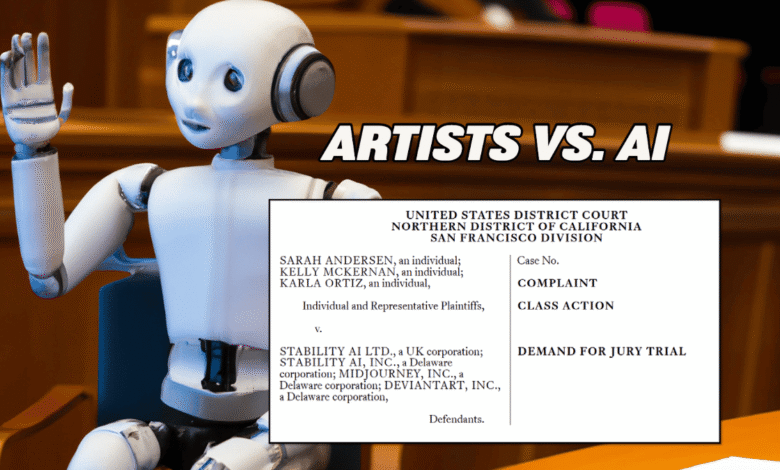
In a landmark legal challenge, the AI copyright case involving Meta’s Llama artificial intelligence model has unveiled critical insights into copyright issues in the digital age. Recently, a judge ruled in favor of Meta against a cohort of authors including notable figures like Sarah Silverman and Ta-Nehisi Coates, paving the path for ongoing debates about the fair use doctrine and its implications for AI technologies. While the judge recognized that it’s generally illegal to copy protected works without permission, he concluded that the plaintiffs failed to demonstrate significant market harm from Meta’s practices. This case has sparked a renewed interest in the complexities surrounding copyright as it pertains to AI training data, especially considering the transformative use argument that has been central to this debate. As the ruling sets a precedent, it opens the door for future litigation and discussions surrounding the balance between innovation and intellectual property rights in the ever-evolving field of artificial intelligence.
The recent court ruling regarding Meta’s Llama AI model represents a pivotal moment in understanding the legal frameworks surrounding artificial intelligence and intellectual property. This significant legal battle escalates discussions about the use of copyrighted material in training AI systems, especially in the light of claims against corporations like Meta for infringing upon the rights of authors. With insights into the fair use principle and transformative use arguments, this case raises pressing questions about how creators’ rights are upheld in a digital landscape marked by rapid technological advancements. Additionally, the ongoing implications for potential lawsuits underline the precarious balance between fostering innovation in AI and respecting the creative contributions of individuals. As the landscape of artificial intelligence continues to evolve, the dialogue around such issues becomes increasingly relevant for stakeholders across the board.
The Meta AI Copyright Case: A Landmark Ruling
In a significant ruling, Meta has successfully won its legal battle against a group of authors, including notable figures like Sarah Silverman and Ta-Nehisi Coates. The case revolved around Meta’s use of various books to train its Llama artificial intelligence model. U.S. District Judge Vince Chhabria highlighted that while it is unlawful to replicate protected works without consent, the authors did not convincingly demonstrate that Meta’s actions led to any market harm. This ruling implies that the use of copyrighted materials in AI training can fall under the fair use doctrine, which aims to balance the interests of copyright holders with societal needs for innovation and progress.
Judge Chhabria’s decision reinforces the notion that the applications of AI can be transformative, as the court ruled in favor of Meta’s argument that its use of authors’ texts was for an innovative purpose rather than merely replicating their works. This outcome is reflective of a growing trend where courts may favor technological advancement over existing copyright frameworks, prompting discussions about the future of intellectual property laws in the age of AI. As the legal landscape evolves, this case may serve as a precedent, reinforcing the legitimacy of transformative uses of copyrighted content under fair use.
Implications of Fair Use Doctrine in AI Development
The ruling in favor of Meta underscores a pivotal point in the fair use doctrine as it applies to AI development. According to the judge’s reasoning, the transformative use of copyrighted material for the purpose of training AI models like Llama can be justified as fair use, as it contributes to innovation in technology. This is crucial since AI development relies heavily on vast amounts of data, often sourced from existing literary works. The decision not only supports Meta’s practices but also suggests that other companies in the AI sector could adopt similar approaches without fear of extensive legal repercussions.
However, while the ruling is seen as a win for Meta, it does not conclusively end the debate over copyright issues in the AI domain. Numerous authors and creators might still contest the legality of such practices, arguing that AI models unfairly exploit their works. The case leaves the door open for future litigations, as the judge noted that other authors might still pursue claims asserting their rights were violated. This dynamic tension between innovation and copyright protection means that while technology advances, the legal frameworks governing such advancements will continue to be scrutinized.
Future Legal Challenges in AI-related Copyright Cases
Despite Meta’s victory, Judge Chhabria made it clear that this ruling is not a blanket approval for the use of copyrighted works in AI training. Legal experts anticipate that future challenges will emerge as authors seek accountability for the unauthorized use of their intellectual property. The ongoing legal battle, particularly with allegations suggesting that Meta may have illegally distributed works via torrenting, emphasizes the complexities surrounding copyright issues. These potential lawsuits could redefine the limits of AI training practices and what constitutes fair use in this rapidly evolving field.
Additionally, the implications of the ruling extend beyond Meta, setting possible precedents for other companies. As other AI developers assess their methods of training models, they must navigate the thin line between utilizing existing works and risking infringement. Companies might find themselves confronting a wave of litigation as authors respond to perceived infringements. The evolving landscape suggests that while AI holds great potential for innovation, it simultaneously necessitates a reevaluation of copyright communities to balance the rights of creators and the needs of AI development.
Navigating Copyright Issues in the Age of AI
The case involving Meta illustrates the need to navigate the murky waters of copyright in the rapidly advancing field of AI. Many authors are expressing concerns about the impact of AI on their creative works, particularly how these technologies can assimilate enormous volumes of their texts to train models without obtaining permissions. The potential market harm cited in court links back to fears that AI could diminish the value of original literary works, making it imperative for authors to engage with legal frameworks that protect their interests while also fostering innovation.
As the industry progresses, discussions about copyright and fair use will likely become more prominent, influencing legislative measures at both national and international levels. Creators may push for reforms in copyright law that consider the capabilities of AI and its implications for the creators of original content. This evolution in legal discourse may lead to clearer guidelines surrounding AI’s use of copyrighted materials and establish a more equitable balance between technological advancement and creative rights.
Transformative Uses of Copyrighted Material
A significant aspect of the judge’s ruling is the emphasis on transformative use, a key principle under the fair use doctrine. Meta’s argument that its usage of copyrighted books represents a transformative purpose is crucial for justifying its practices. This principle states that if the new use of a work adds something new, with a further purpose or different character, it may not infringe on the copyright. As a result, the favorable ruling for Meta could embolden other AI companies to engage in similar practices, citing transformative use as a defense against copyright claims.
However, the definition of transformative use remains a point of contention, particularly for creators who argue that AI-generated outputs do not sufficiently transform their work. The debate will likely elicit ongoing legal challenges as more authors seek to delineate the boundaries of transformative use in the context of AI. This evolution in interpretation will play a critical role in shaping future copyright legislation and the broader discourse surrounding AI’s place in creative industries.
The Ongoing Debate: Market Harm vs. Innovation
In the Meta copyright case, the question of market harm surfaces as a pivotal argument against the backdrop of innovation. Judge Chhabria concluded that the plaintiffs were unable to demonstrate significant market harm caused by Meta’s use of their works. This finding highlights an ongoing debate within copyright law about how to measure the impact of transformative technologies like AI on the traditional market for copyrighted material. Critics argue that as AI technology continues to evolve, it may render traditional authors less viable, raising pressing questions about the sustainability of creative professions.
The juxtaposition of market harm against the potential for technological advancements necessitates a nuanced understanding of copyright issues. As courts grapple with these concepts, they must weigh the protection of authors’ rights with the benefits that AI technologies bring to society. This dialogue challenges lawmakers and judicial bodies to consider new frameworks that may better accommodate innovative practices while safeguarding creative rights, ensuring that both artists and tech innovators can thrive.
Meta’s Response and Broader Implications for AI Development
Meta’s spokesperson expressed appreciation for the court’s decision, emphasizing that open-source AI models contribute significantly to innovation and creativity. This reflects a growing consensus in the tech community that using copyrighted materials under fair use can propel advancements in AI development. The ruling may encourage other organizations to leverage existing works for educational and developmental purposes, thus situating constellations of meaning in the realm of AI without infringing creators’ rights.
However, as Meta continues to navigate the implications of this ruling, it must also prepare for potential backlash from the creator community. Numerous authors may view this decision as a challenge to their intellectual property rights, sparking a push for clearer regulations around AI and copyright. As the dialogue continues, examining how tech giants like Meta shape the future of AI with respect to copyright laws will be vital in creating a sustainable future where both innovation and creator rights are respected.
Exploring the Boundaries of Copyright Law with AI
The Meta case has put a spotlight on the evolving relationship between copyright law and artificial intelligence. As courts establish precedents around fair use and transformative purpose, it becomes evident that existing copyright frameworks may not be adequately equipped to handle the rapid advancements in technology. The necessity for a revised understanding of copyright law in light of AI continues to gain traction, necessitating a collaborative approach between lawmakers, tech companies, and creators.
These developments prompt a need for comprehensive dialogue about zoning in on specific parameters that define fair use in AI contexts. As AI becomes more intertwined with creative processes, addressing these boundaries becomes crucial. Lawmakers may find themselves tasked with drafting more agile legislation to keep pace with technological changes, ensuring that AI serves as a tool for enhancing creativity rather than a source of contention within the copyright framework.
The Need for Legislative Changes in AI Copyright Issues
The ruling against the authors in the Meta case illustrates the urgent need for legislative changes regarding copyright policies applicable to AI. As AI technologies develop at unprecedented rates, the existing legal frameworks often seem ill-equipped to address the challenges posed by new technological realities. Many industry experts advocate for stronger regulations that clarify how copyright laws relate to AI training datasets, ensuring creators’ rights are preserved in an age where their works can be utilized without direct consent.
Furthermore, addressing copyright issues in this new context can redefine the power dynamics between creators and corporations deploying AI. By establishing clearer boundaries and guidelines regarding the use of copyrighted material for AI, legislation can promote a healthier balance between fostering innovation and protecting the integrity of creative work. This progress is essential not only for safeguarding artists’ livelihoods but also for nurturing an environment conducive to responsible AI development that respects intellectual property.
Frequently Asked Questions
What was the outcome of the Meta AI copyright case involving authors like Sarah Silverman and Ta-Nehisi Coates?
Meta won the AI copyright case, allowing its Llama AI model to use books for training under the fair use doctrine, but the judge acknowledged that this ruling is specific to this case.
How does the fair use doctrine apply to the Meta AI copyright case?
In the Meta AI copyright case, the judge found that Meta’s use of books for training its Llama model was transformative, thereby fitting within the fair use doctrine of U.S. copyright law.
What are the implications of the judge’s ruling in the Meta copyright case for future copyright issues?
The judge’s ruling in the Meta copyright case leaves the possibility open for other authors to pursue similar lawsuits, indicating that while Meta won this instance, the broader copyright issues surrounding AI training data remain unresolved.
Did the court find that Meta’s use of copyrighted books caused market harm?
No, the court concluded that the plaintiffs did not effectively argue that Meta’s practices caused market harm, which was a key factor in the judge’s ruling favoring Meta.
What weaknesses did the judge highlight in Meta’s defense during the copyright case?
The judge noted weaknesses in Meta’s argument about public interest and the claim that halting the use of copyrighted texts would hinder AI development, stating such claims were unfounded.
Could other authors still file lawsuits after the Meta AI copyright case ruling?
Yes, the judge indicated that while Meta won this case, other authors could still potentially file lawsuits regarding copyright issues related to AI training data.
What happened in a similar case involving Anthropic’s AI model?
In a similar ruling, a judge found Anthropic’s use of books to train its AI model was transformative, meeting the fair use requirement, but also allowed for a trial regarding allegations of using pirated books.
What did the Meta spokesperson say about the ruling in the AI copyright case?
The Meta spokesperson welcomed the ruling, emphasizing that open-source AI models foster transformative innovation and that fair use is crucial for developing AI technology.
What does the ruling in the Meta copyright case signify for the development of generative AI technologies?
The ruling signifies that while copyright issues exist, the court recognizes the value of fair use in facilitating the development of generative AI technologies, balancing innovation with copyright concerns.
Are there ongoing claims against Meta regarding copyright infringement aside from this case?
Yes, there are ongoing allegations that Meta may have illegally distributed works through methods like torrenting, which are separate from the case judged on fair use.
| Key Points |
|---|
| Meta’s victory in AI copyright case against 13 authors including Sarah Silverman and Ta-Nehisi Coates. |
| Judge ruled in favor of Meta under the fair use principle for using books to train the Llama AI model. |
| Plaintiffs failed to demonstrate market harm resulting from Meta’s practices. |
| Judge left the door open for future lawsuits from other authors regarding AI copyright infringement. |
| Ruling emphasized it does not imply Meta’s practices are lawful in all circumstances. |
| Separate allegations against Meta regarding illegal distribution of authors’ works remain unsettled. |
| Recent case involving Anthropic reinforces fair use but highlights ongoing litigation about piracy. |
Summary
The AI copyright case has concluded with Meta winning the lawsuit against notable authors, setting a significant precedent in the realm of artificial intelligence and copyright law. This case illustrates the complexities of fair use as it applies to AI, indicating that while Meta may have won this legal battle, the landscape for AI copyright issues remains open for future litigation. As prepared by the court, additional lawsuits from other authors regarding AI copyright infringement could emerge, which signifies ongoing challenges and discussions in the world of AI copyright.

